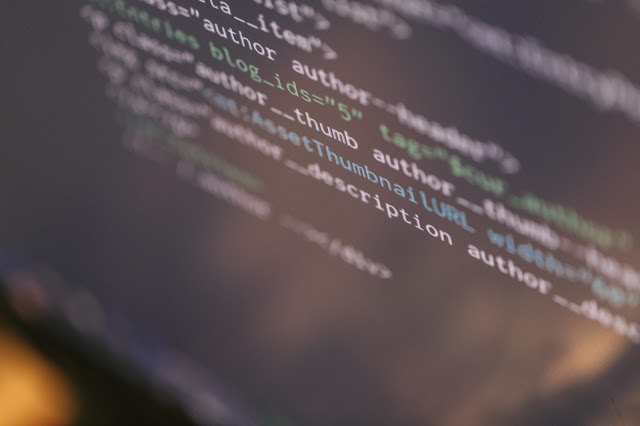Hi I'm Kakeya, CEO & founder of Scuti.
I guess most of the readers of this blog is engineers. My background is the engineer as well. So why do we have to improve our technical skill? IMO, this is to provide the great experience and values to users through the products that we develop. In order to make them more awesome, we must improve our technical skill. Together with the growth of the company or business, each engineer needs to grow up too. In order to aim No.1 business in the world, each engineer needs to be top level.
Then how can we aim top level of an engineer?
One thing we have to do to be a top engineer
I have one philosophy when work. That is "everything is problem-solving". In other words, in order to produce great results, we need to keep making lots of small cycle of 1. set the target, 2. recognize the current status and the gap with the target, 3. raise the solutions to fill the gap, 4. prioritize solutions and 5. execute steadily from the high priority solution.
Growth is also the problem-solving
What I want to say is growth is also the problem-solving of ourselves. In order to grow up, we need to clarify the target of ourselves (what we wanna be, what we wanna do) and how. After we decide how, we must execute it steadily. This is the difficult point of growth.The important thing to grow up is to have a habit to keep learning.
This is not for only engineers but also all business persons. The way to learn I strongly recommend is reading books. I'll describe the detail later.
"I'm busy" is just an excuse
I've ever seen people say "I don't have enough time to spend for learning" but I really think it's just an excuse. Business elites who are much busier than such people must have a habit to learn. It's just a priority.Ensure even 30 minutes to learn the new things. It's easy to "hack" 30 minutes from your existing life cycle. You can stop watching TV, stop drinking, stop playing football, stop smoking, make sleep time shorter, try to do something in parallel and so on.
What to learn
Set the target
So the first step to speed up our growth is to clarify our target. How long? Longer is better. The ideal is the target what we wanna do till dead. Only you can decide it. Please do not compromise to think of yourself.Put milestones
Long-term target makes us confused. Then we need to set milestones to make it easier to imagine what to do actually. For example, if your target of 30 years later is "to be an investor to invest in over 10 startup teams and change the world with technology", what do you have to do till 10 years later in compare with the current situation? In order to achieve the target of 10 years later, what do you have to do until 5 years, 3 years, 1 year? How about tomorrow?Role model
It's also a good way to find a role model. We can trace their career and thought pattern.How to keep learning
After you've decided the long-term target and put milestones, the next step is to list up the actual ways to fill the gap between the target and current situation. This equals how to learn. I summarized the way to learn for engineers before so I would be glad if you could refer it too.
For engineers, my recommendation is reading books and reading source codes of the other top programmers. For the latter one, Github trending is useful.
Benefits of reading
I strongly recommend choosing reading books for your growth.
Reading volume can be linked to income
This is a little old data of Japan butThe annual income of 5 million yen to 8 million yen is less than 5 to 30 minutes of reading time a day, whereas the average of annual income of 15 million yen or more is 30 minutes of reading time or moreAccording to another survey, results have come out that business persons in their 30's are reading 0.26 books per month in average. On the other hands, people who have an annual income of over 30 million yen in their 30's seem to read 3.1 books per month in average.
PRESIDENT vol 2012/4/30
The world top executive who is supposed to be busier than us tends to read dozens of books in a month. Millionaires such as Microsoft founder Bill Gates and one of the world's top three investors Warren Buffett are said to read books for more than 30 minutes a day. On the other hand, it seems that only 2% of people with an annual income around 3 million yen read books for more than 30 minutes a day.
Very high ROI (Return on Investment)
Books are the things that very smart and experienced people summarize only the most important things based on their knowledge, experience, and wisdom. How much and long did they spend to get this result? But if we read books, we can shortcut this time and money. Then the general price of books is around $10 - $50. We must say it's too cheap.Historical great men said the similar things as well.
Employ your time in improving yourself by other men's writings, so that you shall gain easily what others have labored hard for.
- Socrates
The reading of all good books is like a conversation with the finest minds of past centuries.
- Rene Descartes
How to read technical books
I think the way to read business books and the way to read technical books are different. Especially the way to read technical books depends on the skill level.
Choose the optimum level
Basically, technical books have the target of skill levels. If you are a beginner level but choose a book for a high-level engineer, you can't learn anything and it must be waste of time. Important point is to raise the level gradually.Not only one book but also refer multiple books
Books have a different policy even for one region. Some are practical contents, the others focus on theory and so on. So we should not be satisfied with only one book but we should refer multiple books of one region of the same level.Refer books that famous engineers introduced
Great engineers read great books. So this is also a good way to find the great books.Output!
Only reading is almost meaningless. The purpose of all inputs should be output. The best way is to try writing the sample codes by yourself. Japanese call it Shakyou (sutra-copying). If we write the code actually, our body can remember well.Must read books for young programmers
Just after I graduated the university, the company I entered prepared for the training course and they let us read some technical books. Books always help us learning.
Here's the list of some technical books that I recommend to read for especially beginners (I read in Japanese though).
The Art of Readable Code
This is a modern bible for all programmers. In order to prevent selfish code, we must read & understand this. The contents are so simple and not so much volume so it's easy to read. Must read!
Clean Code
Anybody can only write business logic. A professional programmer must write clean code. This book is practical. This shows good/bad practices, anti-patterns to make the codes complicated, how to refactor and so on.
Code Complete 2
This is a kind of textbook for a programmer and I guess lots of IT companies deliver this book to newbies. This book covers very wide range of technical region (so very thick) and can cover a wide range of levels of engineers. That's why it's not easy to understand all. But instead of it, we can use it for long.
Refactoring
This is a little unique and focuses on refactoring. We imagine refactoring is just to clean up codes but this book is also practical when we enhance functions on existing source codes or make it testable. Unfortunately now we can't find this book of the Japanese version.







0 Comments:
Post a Comment